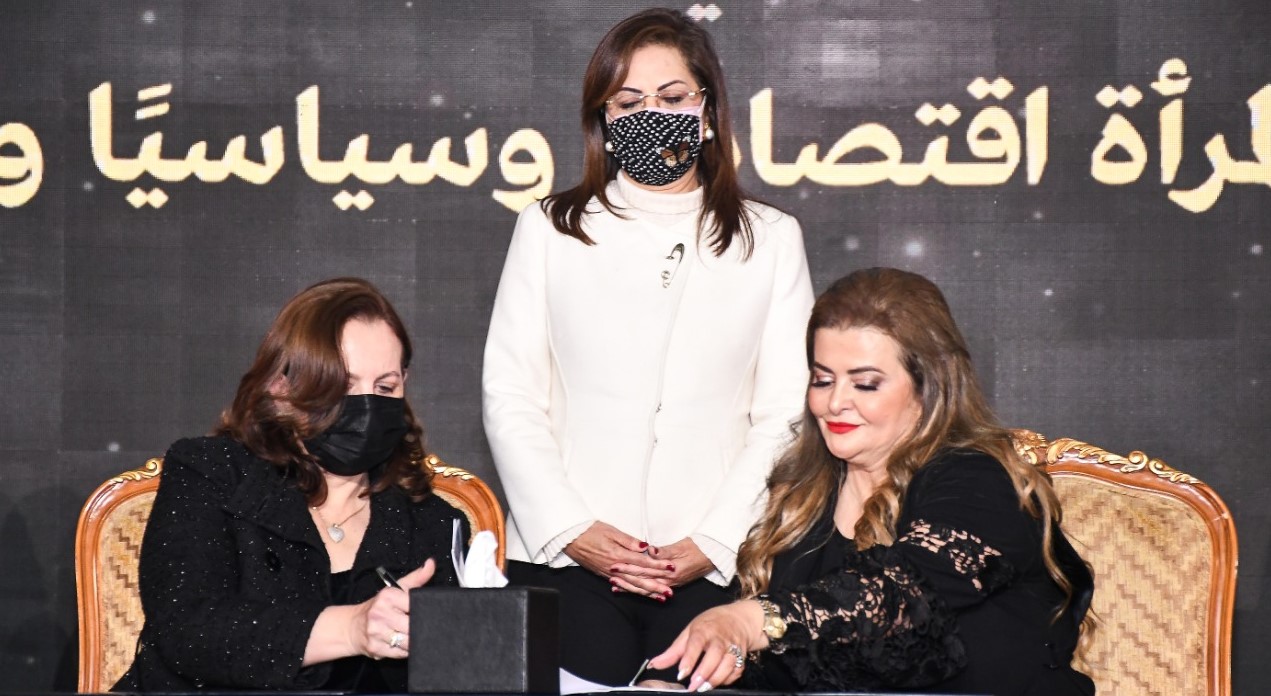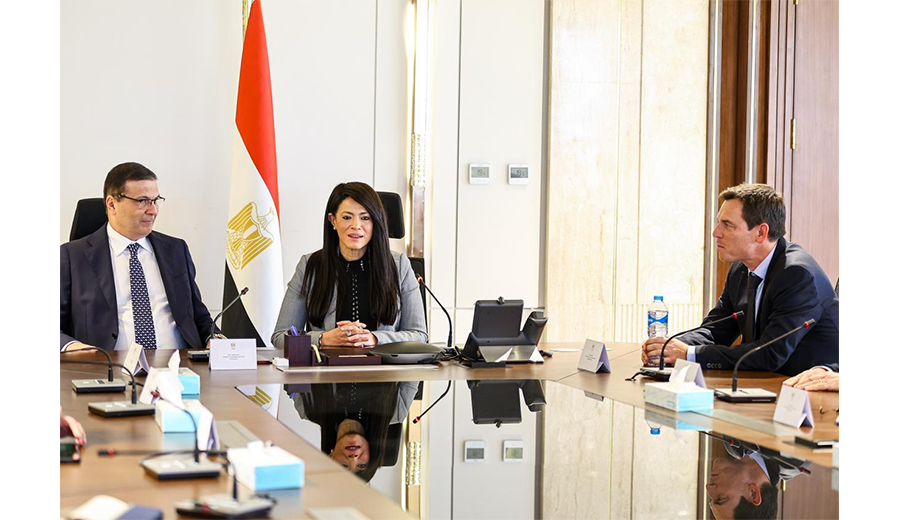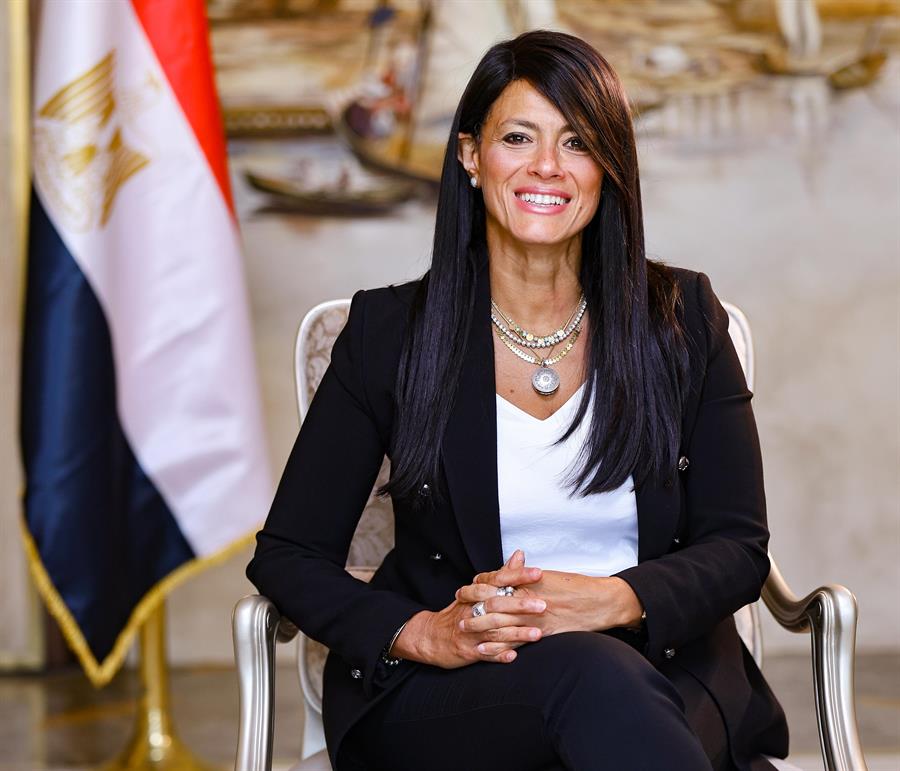The Minister of Planning and Economic Development witnesses the signing of a memorandum of understanding between the National Institute for Governance and Sustainable Development (NIGSD) and the 50th Forum Company to prepare human cadres for cooperation in support of the empowerment of Egyptian women

01 March 2021
Dr. Hala El-Said: NIGSD has a long and proven track record in the field of supporting and empowering Egyptian and African womenDr. Hala El-Said, Minister of Planning and Economic Development, witnessed the signing of a memorandum of understanding between the National Institute for Governance and Sustainable Development, (NIGSD) the training arm of the Ministry, and the 50th
Dr. Sherifa El-Sherif: The Memorandum of Understanding aims to support the process of sustainable human development for Egyptian women
Forum Company for preparing human cadres on cooperation in the field of supporting the empowerment of Egyptian women, during her participation in the celebration of the "Egypt for the Best" held yesterday evening Sponsored by the "50 Most Influential Women" Forum and under the patronage of the Prime Minister.Hala El-Said asserted that NIGSD has a long and proven track record in the field of supporting and empowering women, through cooperation with a wide network of local, regional and international bodies to implement many activities and activities to develop and develop the human capabilities of women. Among the most important training programs implemented by the institute in recent times is the executive leadership program for Egyptian women, which aims to build the capacities of women in the state’s administrative apparatus and increase the share of their representation in leadership executive positions. Hundreds of working women have been trained in the various units of the Egyptian state’s administrative apparatus.
Mechanisms have also been developed to follow up on graduates and to provide continuous training and rehabilitation opportunities for them.El-Said pointed out that the Institute's activities were not limited to Egyptian women, but extended to include African women through the implementation of the Executive Leadership Program for African Women, to contribute to the social and economic development of the African continent and empower African women.El-Said explained that the Memorandum of Understanding signed between the institute and the 50 Forum Company for preparing human cadres comes from the full awareness of the importance of cooperation between institutions aiming to support the process of sustainable human development, especially those related to the development and development of women's capabilities.On her part, Dr. Sherifa El-Sherif, Executive Director of the National Institute for Governance and Sustainable Development, drew attention to the importance of the role the institute plays in supporting the building and development of human capacities of Egyptian women cadres in all fields to promote efficient and effective management of state resources and achieve sustainable development following Egypt's Vision 2030, and what it enjoys. By the 50th Forum Company for preparing human cadres of a distinguished position in the implementation of various activities aimed at supporting and empowering Egyptian women.About areas of cooperation according to the memorandum of understanding, El-Sherif explained that it is represented in joint support for the sustainable human development process for Egyptian women, as well as community education and raising community awareness of the importance of preparing new cadres of technocrats and helping them to reach decision-making positions.In addition to providing technical support for development initiatives aimed at empowering women technocrats, conducting the necessary legislative studies to support and empowering women, as well as cooperation in preparing joint research and scientific studies and establishing scientific activities such as scientific conferences, seminars, and workshops, within the framework of the mutual desire of both parties to support Sustainable Development Strategy - Egypt Vision 2030.It is noteworthy that the activities of the Egypt Summit for the Best in 2016, held under the patronage of His Excellency the Prime Minister, witnessed the agreement between the 50 most influential women in business enterprises for the year 2015 to establish the “The 50th Most Influential Women” forum.Dr. Hala El-Said became one of the members of the forum as she participated in the successive sessions of Egypt for the Best Summit, which annually witnesses the honor of the 50 most influential women in an environment in the financial and business sector. Yesterday, the celebration activities witnessed the honor of Dr. Hala El-Said by the forum management on the occasion of her obtaining the best Arab Minister in the Arab Excellence Award.









